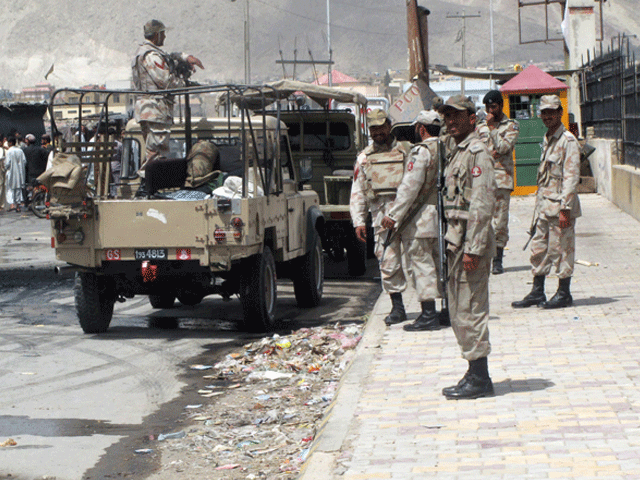
“A continuity of the democratic process is the only solution to the declining level of education in Sindh,” said provincial minister Pir Mazharul Haq.
“The government has helped reduce the effects of a 30-year-old ban on the recruitment of teachers,” said Haq, who added that, “7,000 teachers have been employed by the government through a fair and transparent procedure with the help of the World Bank (WB). This has helped create resources for 1,400 schools while policies are being followed to do away with unfair and unnecessary postings.”
The discussion, which was arranged by members of the Pakistan Institute of Legislative Development and Transparency (Pildat) for members of the Sindh Assembly, focused on the project under the United Nations Educational, Scientific and Cultural Organisation (Unesco), titled Education for All (EFA).
Under this project, every one has the right to quality education, said Dr Warren Mellor, a representative of Unesco for “EFA in Pakistan”, who added that Pakistan is a signatory to the EFA Goals and Dakar Framework of Action, under which the country needs to expand and improve its childhood care and education programme, especially for the most vulnerable and disadvantaged children.
Pildat executive director Ahmed Bilal Mehboob gave an overview of the impact of the recent floods on education in Pakistan. He stressed the importance of public financing in the sector, which he said was given very little importance in the budget.
Pakistan lags behind many South Asian countries in its educational development programme, said Unesco’s senior national specialist for education, Arshad Saeed Khan. “At 2.8 per cent of its gross national product (GNP), Pakistan’s expenditure on education is the second lowest in South Asia after Bangladesh at 2.4. With its literacy rate at 54 per cent, it is also the second lowest in terms of literacy in the region, right above Bangladesh at 53 per cent.
The average number of years a person spends in pursuing education in the country is 5.7,” said Khan, who added that the money allocated to education in Pakistan’s budget had also decreased from 2.49 per cent of the gross domestic product (GDP) in 2008 to 2.05 per cent in 2010.
Around 3,520 schools in Sindh were damaged in the floods while 1,503 are currently occupied by the IDPs. A total of 0.2 million primary-school students have been affected, he said, adding that the total cost of reconstruction over a period of two years comes down to around Rs74.461 billion.
According to Khan, five per cent of Sindh’s education budget should be allocated to adult literacy, as well as to creating social mobilisation and mass media drives for an enabling environment and political leadership.
In order to foster education in Pakistan, legislation must be set in place to provide free primary education as a fundamental right of the people, it was discussed at the meeting. The country must also increase its expenditure on education by a minimum of four per cent of its annual GDP as well as develop its education system by training teachers, appointing qualified executives, strengthening accountability mechanisms and setting up a “per child education budget”, it was also stated.
Members of the Sindh Assembly said that the education system can only improve if it is imposed on all private and government institutes. Apart from meeting the financial requirements, the government needs to make laws and stress their implementation as well as control other factors that hinder the education system, such as poverty and child labour.
The roundtable was attended by MPA Anwar Alam Mahar, MPA Khalid Bin Wilayat, MPA Farheen Mughal, MPA Taimur Talpur, MPA Syed Bachal Shah, MPA Humera Alwani, MPA Shehnaz Ali, MPA Rai Naz Bozdar, MPA Najamudin Abro, chairman of the Sindh Assembly’s standing committee on education, as well as members of civil society.
Published in The Express Tribune, October 5th, 2010.









1732343209-0/BeFunk_§_]__-(36)1732343209-0.jpg)







COMMENTS (7)
Comments are moderated and generally will be posted if they are on-topic and not abusive.
For more information, please see our Comments FAQ